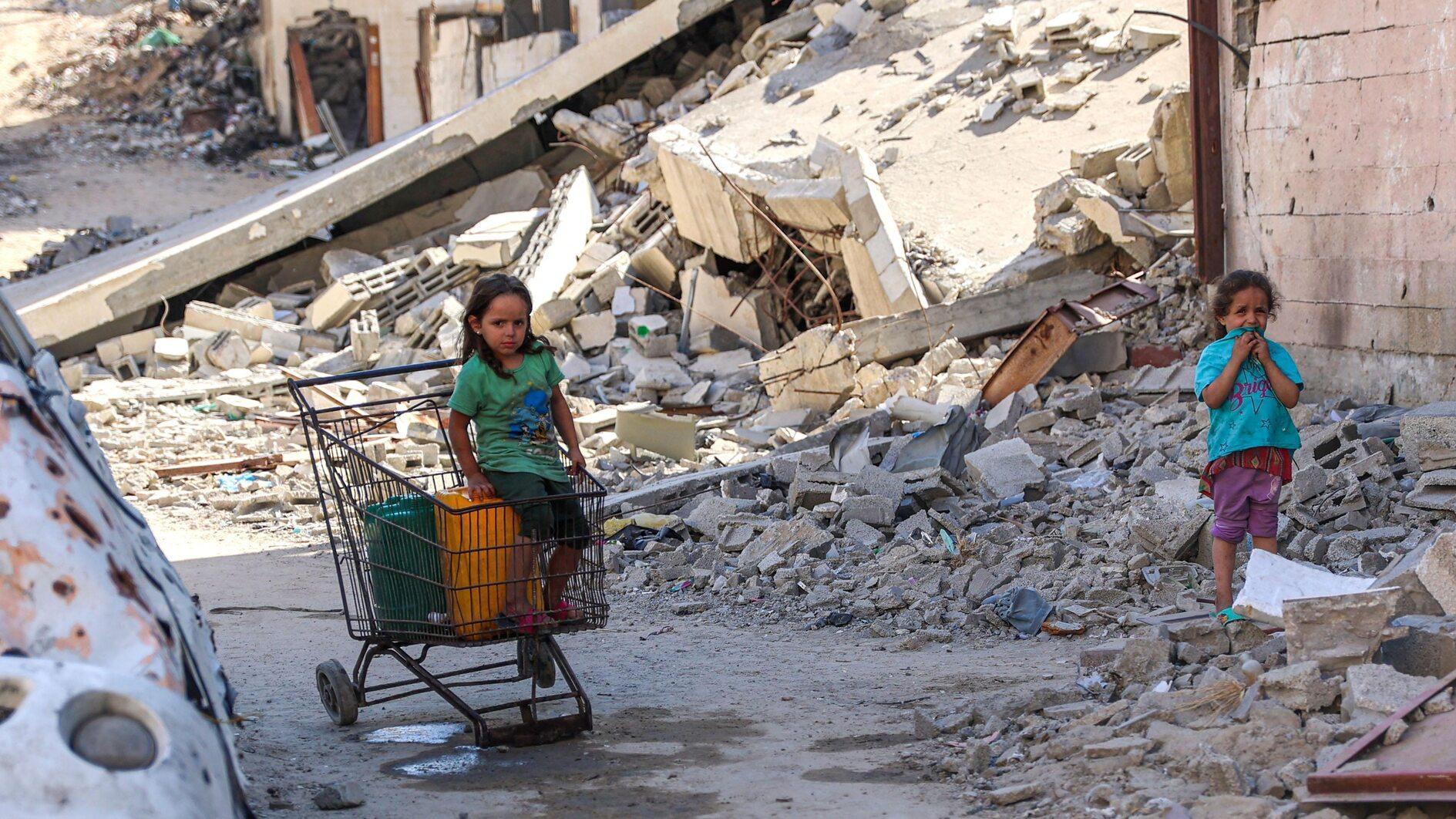
Hamas accepts a U.N. Security Council ceasefire resolution, and the group is ready to negotiate over the details, a senior Hamas official said on Tuesday in a first major green light to a recently announced proposal.
The U.N. Security Council on June 10 overwhelmingly approved its first resolution endorsing a ceasefire plan aimed at ending the eight-month war between Israel and Hamas in Gaza.
Hamas accepts the U.N. Security Council resolution in regard to the ceasefire, withdrawal of Israeli troops and swap of hostages for detainees held by Israel, Sami Abu Zuhri said.
"The U.S. administration is facing a real test to carry out its commitments in compelling the occupation to immediately end the war in an implementation of the U.N. Security Council resolution," he said.
The U.S.-sponsored resolution welcomes a ceasefire proposal announced by President Joe Biden.
The resolution — which was approved with 14 of the 15 Security Council members voting in favor and Russia abstaining — calls on Israel and Hamas “to fully implement its terms without delay and without condition.”
Türkiye also welcomed the Security Council's adoption of the resolution.
In a separate statement, Hamas said that it welcomed the adoption of the resolution and was ready to work with mediators in indirect negotiations with Israel to implement it. The statement was among the strongest from Hamas to date, but it stressed the group would continue its struggle against Israeli occupation and work on setting up a “fully sovereign” Palestinian state.
Hamas' welcoming of the U.N. vote on the ceasefire resolution was a "hopeful" sign, U.S. Secretary of State Antony Blinken said during his eighth Middle East tour since the war began last October.
“It is a hopeful sign, just as the statement issued after the president (Joe Biden) made his proposal 10 days ago was hopeful," he said.
"But it's not dispositive. What is dispositive - or at least what so far been dispositive in one way or another - is the word coming from Gaza and from the Hamas leadership in Gaza. And that's what counts. And that's what we don't have.
"I met with Prime Minister Netanyahu last night and he reaffirmed his commitment to the proposal," Blinken also said.
Blinken on Tuesday also met Gantz as well as opposition leader Yair Lapid, both of whom have been highly critical of the right-wing premier and his conduct of the war.
Washington has also strongly pushed for a "day-after" plan for Gaza, promoted a governance role for Hamas' rival, the Palestinian Authority, and urged steps toward a two-state solution.
Blinken said, "There has to be a clear political plan, a clear humanitarian plan to ensure that Hamas does not in any way, shape or form [remain] in control of Gaza and that Israel can move forward toward more enduring security.”
War rages on
Amid the crisis diplomacy, Israel again bombed Gaza, and the army reported that four Israeli troops were killed in the far-southern city of Rafah on Monday in what Hamas claimed was a booby-trap explosion.
Israeli forces carried out fresh strikes, with hospital sources reporting several Palestinians killed in the centre of the territory.
Israel has faced an international outcry over the spiralling death toll in the war raging for over eight months, which saw 274 people killed during an Israeli special forces raid Saturday to rescue four hostages, according to health officials in Hamas-ruled Gaza.
Israel launched its war on Gaza in retaliation for the Hamas' Oct. 7 attacks that resulted in the deaths of more than 1,170 people, mostly civilians, according to Israeli official figures.
Israel's offensive has killed more than 37,000 people in Gaza, mostly civilians, according to the Hamas-run territory's health ministry.
An Israeli siege has deprived Gaza's 2.4 million people of most food, clean water, medicines and fuel and pushed many to the brink of starvation.
The future of Gaza, and ways to step up humanitarian relief, were to be discussed at a conference on the shores of the Dead Sea in Jordan on Tuesday, to be attended by U.N. agency chiefs, Blinken and Arab leaders.
Jordan's foreign ministry said the meeting would discuss "preparations for early recovery and seek commitments for a collective and coordinated response to address the humanitarian situation in Gaza".
On another front, Hezbollah said Tuesday that it targeted an Israeli military position following overnight strikes in eastern Lebanon that killed three of its fighters, hours after the Iran-backed group downed an Israeli drone.
A Hamas ally, Lebanon's Hezbollah, has traded near-daily fire with Israeli forces since the war broke out.
More than eight months of cross-border violence have killed at least 462 people in Lebanon, mostly fighters but also almost 90 civilians, according to an AFP count.
On the Israeli side of the border, at least 15 soldiers and 11 civilians have been killed, according to the army.